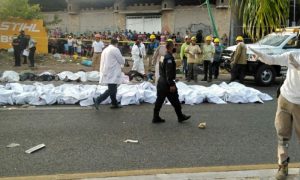NEW DELHI: Kashmir’s pro-India political leader Omar Abdullah confessed that there is no democracy in Indian Illegally Occupied Jammu and Kashmir (IIOJK). He expressed these remarks during an interview with Associated Press on the eve of the fourth anniversary since India unilaterally revoked the special status of IIOJK, throwing the region into political turmoil and disorder. He said democracy stops where Jammu and Kashmir start.
Kashmiri Politician Rejects India’s Claim of Normalcy in IIOJK
He said India’s 2019 unilateral decision to strip the IIOJK’s statehood, its constitution and protections on jobs and land have pushed the region into a “democratic void” and led to a crackdown on civil liberties.
He told AP that the situation in the IIOJK is abnormal. The move’s abrupt implications were that the Muslim-majority region lost its constitution, criminal code and special status. The changes were brought by extremist Narendra Modi’s government and strongly opposed by people in IIOJK.
Abdullah’s party has also been alleged for legitimizing India’s high-handed militaristic policies in IIOJK.
Kashmiri started a struggle against India and seeking unification with Pakistan. Tens of thousands of civilians were killed in the conflict in the region.
Read Also: Kashmiri Leaders Urge Int’l Community to Stand in Solidarity with Kashmir
Kashmiris say the new unilateral acts of India were devised to change Kashmir’s demography as Israel did in Palestine. Abdullah admitted, “ A large number of people in IIOJK does not agree with accession to New Delhi”.
Abdullah’s party also challenged new changes in the region in India’s Supreme Court, however, India’s notoriously slow justice process ensures several cases remain pending for several years — many time even decades. The Kashmiri politician also dismissed New Delhi’s claims of normalcy and progress in IIOJK. He added that there is no civil liberties, press freedom in the region. He was detained for over seven months after India’s unilateral act in IIOJK. He questioned why is IIOJK being deprived its democratic right?






















